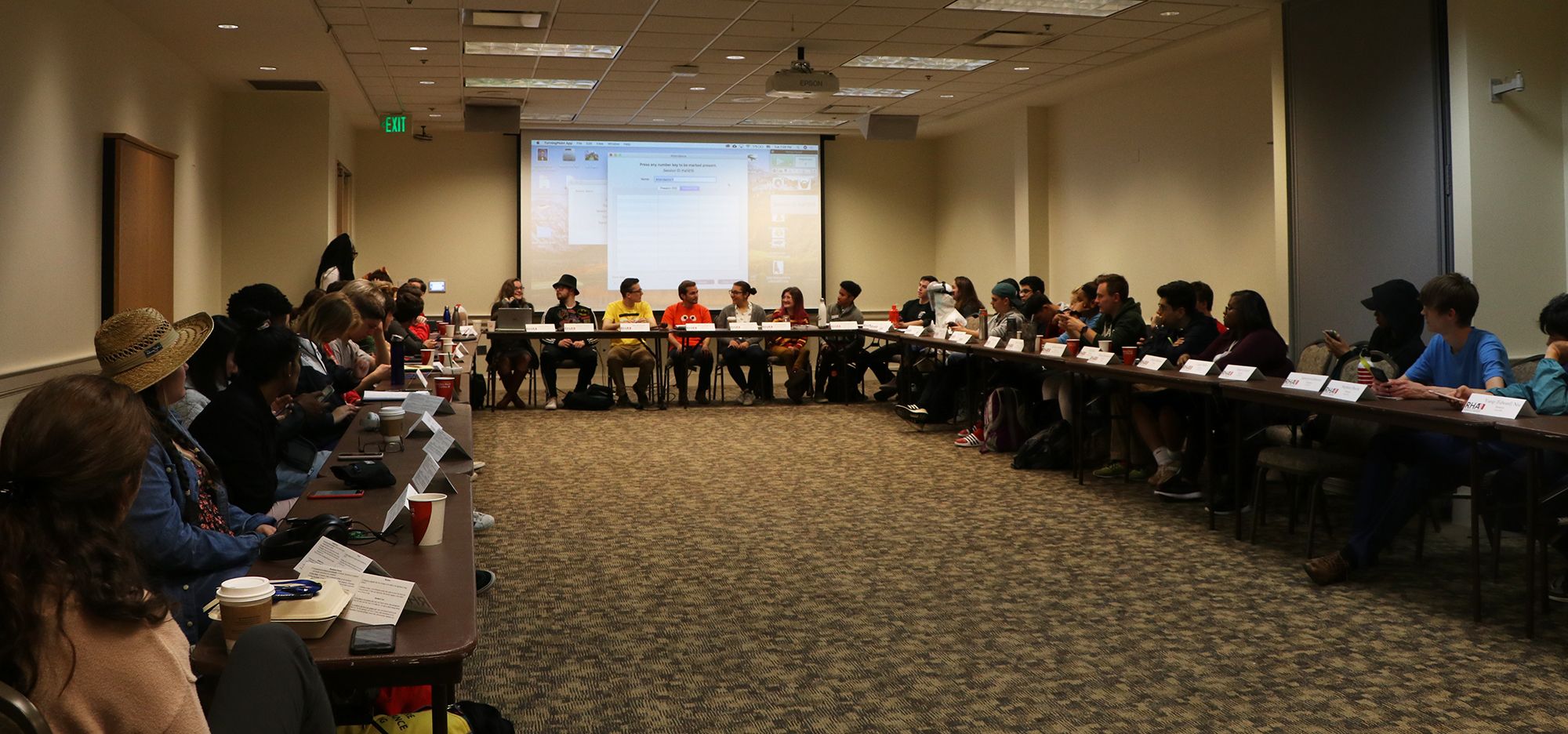The University of Maryland RHA rejected a resolution Tuesday night to support a proposed DOTS budget that could’ve cut summer bus routes.
“This [budget] may in fact be incredibly negative on the students that come here over the summer, as well as the employees that use these lines to get here,” said Quintin Harry, Residence Hall Association Transportation Advisory Committee chair.
The resolution failed 3-34, with 0 abstentions.
The proposed budget was downvoted in the Campus Transportation Advisory Committee — one of the three layers needed to pass the budget — on Friday, and the body presented recommendations for an alternate financial plan.
Also on Tuesday, the RHA backed CTAC’s recommendations: that the Department of Transportation Services should explore becoming exempt from mandatory overhead fees, increasing parking rates for employees who make over $150,000, and obtaining research grant funding.
That measure passed 31-2, with 0 abstentions.
[Read more: The RHA wants to bring dockless scooters to UMD]
CTAC didn’t approve of DOTS’ “unsustainable” funding model, which relies primarily on the revenue from parking spots to fund public transportation, said Alec McCarren, TAC vice chair. He urged the RHA to stand in solidarity with them.
“The problems that are occurring this year will only persist [if things don’t change],” the sophomore economics and mathematics major said.
RHA Vice President Benjamin Reichard agreed that the department’s “funding model is fundamentally flawed,” and said as the university loses more parking spots, the problem will only get more pronounced.
A slew of campus construction projects — including Cole Field House and the Purple Line — have slashed the number of campus parking spots by the hundreds.
When senators raised questions about how DOTS could be exempt from mandatory overhead fees — a percentage of each department’s budget for operational costs — Senator Zachary Schlaich said DOTS should talk to the university to broach the topic.
“Costs get pushed onto students one way or another, the benefit to this is that it’s not coming out of DOTS budgets,” Reichard said. “There’s a chance some of the academic departments absorb [the costs] more than, say, student affairs.”
The next suggestion — to increase parking rates for employees who make over $150,000 — could bump parking costs from about $900 to $1,300 for faculty and staff for all-year parking passes.
Currently, faculty and staff pay for parking based off how much money they make, McCarren said. The current system is made up of five tiers: the first tier requiring employees who make $30,000 or less to pay $461 for their pass, up to the fifth tier, which requires staff members with salaries of $80,000 or more to pay $921 for their passes.
[Read more: UMD RHA votes to establish new position for diversity and inclusion]
And since graduate and research students would be included in the population of people using summer bus routes to this university, a research grant could be a feasible way to boost DOTS’ budget, McCarren said.
Harry said that portions of these types of grants already go to maintaining facilities for buildings where research projects occur, and the idea would be that some of the money could go to bus routes instead.
But RHA senator Andy Wang thought they should do more. He proposed an amendment that the department look into hiking parking citation fees to be greater than $85, up from the current $75 fee, to bolster its revenue alongside the other measures.
Some senators pushed back against the proposed change.
Shawn Verma, a senior computer engineering major, said the organization would be “los[ing] focus of who this is impacting” if the suggestion were tacked on to the body’s stance. He relayed a story about a female student who cried while recounting that she received a parking ticket and failed to get an appeal, leaving her unable to afford groceries.
While RHA President Bryan Gallion said it’s unlikely DOTS will be able to include greater citation hikes in this year’s budget — DOTS is set to present a new budget to him and Reichard tomorrow, he said — the amendment passed 21 to 13, with 0 abstentions.
Still, Verma was unsatisfied.
“[DOTS is] going to come to you every single year with something ridiculous,” he said. “Please do not be comfortable with paying more and shifting the blame to some of the constituents, some of the residents. Push DOTS, not us.”
CORRECTION: Due to a reporting error, a previous version of this story incorrectly attributed a quote to Bryan Gallion. Due to an editing error, a previous version of this story also misstated the current cost of parking citations as $70. This story has been updated.



